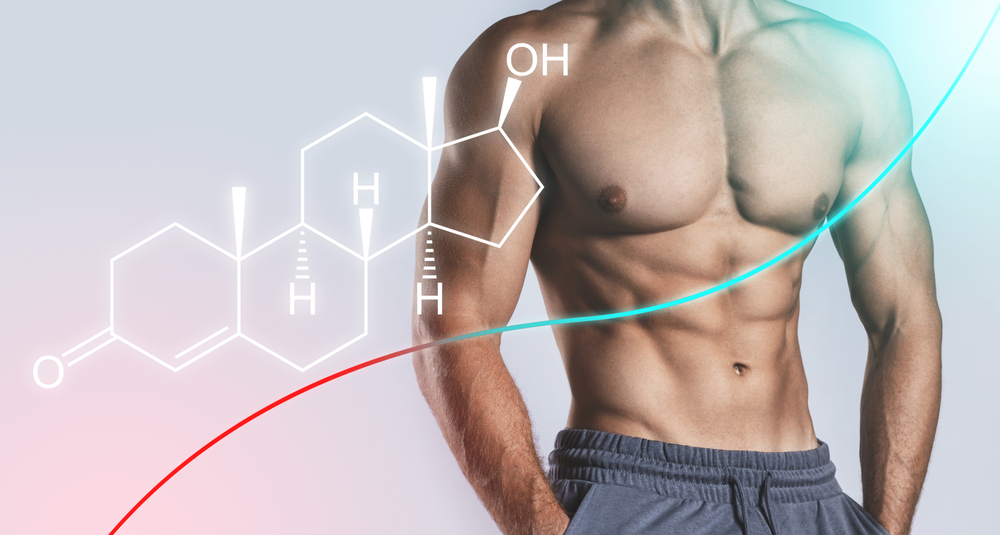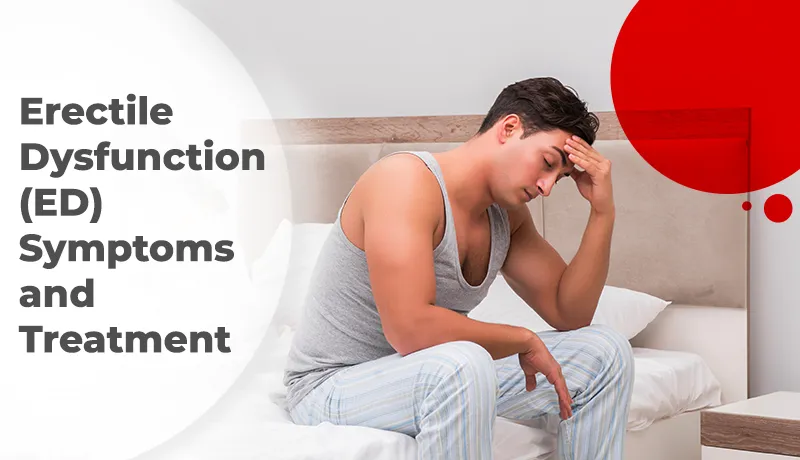What Is Testosterone?
Testosterone is a hormone produced in the body, mainly in the testes in men. Women’s bodies have testosterone too, though it’s a small amount.
What Does Testosterone Do?
Testosterone affects men’s health in many ways, both mentally and physically. Testosterone stimulates pubertal development in adolescent males, including muscle and facial hair growth.
But testosterone is essential in adulthood, too; testosterone is vital for male fertility and reproductive function. Abnormal testosterone levels can affect healthy sperm production, sex drive, as well as your ability to achieve and maintain an erection and ejaculation.
Testosterone also contributes to energy levels, mood, and sleep. In addition to these mental health effects, testosterone is essential for bone health, muscle health, and heart health in men.
It’s common for your testosterone levels to decline as you get older. As this happens, many men develop symptoms such as a decrease in muscle mass and bone strength, a reduced interest in sex, and an increase in their body fat percentage.
6 Ways to Boost Testosterone Naturally
Normal testosterone levels can vary by a significant amount. According to a study of more than 9,000 men, the average testosterone range for healthy, non-obese men is typically between 264 and 916 ng/dL.
Testosterone levels below this range could indicate that you have testosterone deficiency. This can occur for various reasons, from getting older to medical conditions, certain medications, and even aspects of your lifestyle.
You can increase your testosterone levels naturally by making small-but-consistent lifestyle and habit changes.
Here are eight natural tips that you can use to increase your testosterone levels:
1.Exercise More Often
We all know hitting the gym regularly has its benefits — from helping you look and feel better to disease prevention. But did you know it also overlaps with testosterone production?
While any type of exercise is better than none, research also suggests that resistance or strength training might be the most effective way to boost testosterone levels with exercise.
For example, a study found that physically active men had higher testosterone levels, follicle-stimulating hormone (FSH), and luteinizing hormone (LH) than sedentary men.
Several studies have found that resistance training increases testosterone levels in healthy people.
Exercise also offers several other benefits, from assisting with weight loss (an essential factor for your hormonal health) to strengthening your bones and muscles, improving your mood, and lowering your risk of heart disease, diabetes, and countless other chronic diseases.

2.Improve your diet
Adopting and maintaining a healthy diet benefits your testosterone levels in two primary ways:
- Promotes weight loss and a healthy weight
- Reduces the chance of blood sugar spikes
Men who are obese are much more likely to have low levels of testosterone. Excess abdominal fat, in particular, is likely a primary culprit. More of this type of fat is thought to result in higher production of the aromatase enzyme, which converts testosterone into estradiol — lowering a man’s free testosterone levels. For this reason, losing weight may improve testosterone levels, and a healthy diet can help you achieve that.
A healthy diet includes plenty of vegetables and fruits, whole-grain carbohydrates, moderate healthy fats, and lean protein, such as chicken and fish.
3.Minimize stress and cortisol levels
Research often highlights the dangers of long-term stress, which can elevate levels of the hormone cortisol.
Sudden elevations in cortisol can quickly reduce testosterone. These hormones often work in a seesaw-like manner: As one goes up, the other comes down.
Stress and high cortisol can also increase food intake, weight gain, and the storage of harmful body fat around your organs. These changes may negatively affect testosterone levels.
Try to manage your stress levels for optimal health and hormonelevels. Staying active, getting plenty of sleep each night, and practicing some stress-relieving techniques may be beneficial.
4.Consider taking supplements
Although the potential benefits of multivitamins are hotly debated, certain supplements may be helpful in supporting healthy testosterone levels.
In one study, zinc supplementation increased testosterone levels and improved sexual function in postmenopausal women with low blood levels of zinc.
According to another review, zinc supplementation could also benefit men with low testosterone levels and infertility, particularly if they have a testosterone deficiency.
Older studies suggest herbal supplements, including saw palmetto, ginger, and ashwagandha, could help support healthy testosterone levels. However, more research is needed.
If you decide to add any supplements to your routine, talk with a healthcare professional first, especially if you have any underlying health conditions or are taking other medications.
5.Focus on Getting Healthy Sleep
Getting good sleep is as essential for your health as diet and exercise. Sleep quality may also have significant effects on your testosterone levels.
Your body produces and releases most of its testosterone while sleeping, making sound sleep hygiene essential for maintaining healthy testosterone levels and overall health.
One study involving 2,295 teenage boys and men found that impaired sleep could be linked to lower levels of testosterone.
The ideal amount of sleep varies from person to person, but a small 2011 study found that sleeping only 5 hours per night was linked to a 10%–15% reduction in testosterone levels.
Interestingly, one study involving older men found that an increased sleep duration of up to 9.9 hours was associated with increased testosterone levels. Conversely, sleeping more than 9.9 hours was tied to lower testosterone levels.
6.Drink Alcohol in Moderation
The relationship between alcohol and testosterone is complex. Some research suggests that excessive alcohol consumption can decrease testosterone levels.
Testosterone levels may drop as quickly as 30 minutes after you drink alcohol. Heavy alcohol use can lead to reduced testicular function and testicular atrophy.
Interestingly, studies involving adolescent boys and young men have found that testosterone levels can be used to predict alcohol dependence or the onset of alcohol use. Higher levels in the saliva or blood are associated with heavier use of alcohol and younger age at the onset of alcohol use.

When to See a Doctor About Testosterone Levels
If you are a male experiencing fatigue and low sex drive, speak with us about having your testosterone levels evaluated. Even if it isn’t testosterone causing your symptoms, meeting with Vancouver Laser is the first step to pinpointing what’s behind them.
If your testosterone levels are low, we will likely run more tests and help you work toward a solution, whether it’s through natural ways to boost testosterone or testosterone therapy.



